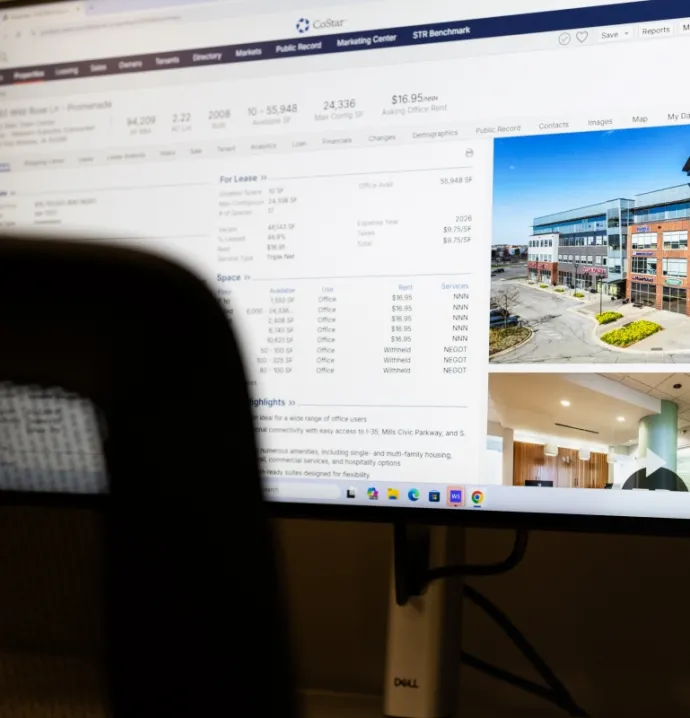UNI’s Business & Community Services gathers, leverages data to assist in Iowa storm response
UNI’s Business & Community Services gathers, leverages data to assist in Iowa storm response
The University of Northern Iowa’s Business & Community Services operates with the mission to support and build a better Iowa, and there’s no better example than when tough times strike. In spring 2024, large areas of Iowa were devastated by powerful storms and subsequent flooding, causing an estimated $130 million in infrastructure damage and impacting countless lives.
The Institute for Decision Making (IDM) and Strategic Marketing Services (SMS) — two of the organizations under the BCS umbrella — partnered with several other organizations across the state to assist with recovery and response. SMS and IDM worked together to develop and distribute surveys and gather crucial data from affected communities to help understand the immediate and long-term needs of residents and businesses.
These surveys captured insights into community sentiments around local, state and federal response, resource requirements, and infrastructure damage, while also helping recovery effort efficiency to specific challenges. Data was analyzed and then applied to identify priority areas for assistance and resource allocation.
This approach played a crucial role in informing immediate relief efforts and guiding long-term recovery strategies aimed at fostering resilience against future disasters.

Our goal is to identify the immediate needs and understand the true impact. With our long history of working closely with communities across the state, we’re able to provide insights that inform response efforts locally, statewide and nationally.
Floods devastated Rock Valley, a town of under 5,000 people in northwest Iowa. More than 500 homes and 50 businesses were damaged, some of them permanently. Data collected by the IDM and SMS was used to inform the responses by local governments, economic development organizations, health care organizations, schools, nonprofits and donation collections. Additionally, city leadership leveraged the data to determine next steps for temporary and long-term housing plans and passed the data on to third-party partners to assist.
Beyond the response, the data also helped residents better understand the damage and what needed to be done – key messaging that goes a long way toward instilling confidence in response efforts.
“Having the ability to partner with multiple agencies to connect with our community members, then to review the data for our benefit, as well as pass it to those partners, was critical in turning the page from response to recovery,” said Dave Miller, development director for the City of Rock Valley. “On a local level, there is so much happening, and having this tool streamlined the data gathering process for our community and also saved time by having one collective effort from all partners.”
This is not the first time BCS has taken a proactive approach to devastating events. At the beginning COVID-19 pandemic, IDM and SMS surveyed nearly 14,000 Iowa businesses and nonprofits within six days on behalf of the Iowa Economic Development Authority, and the results were key in shaping state assistance efforts.
By bridging the gap between community needs and actionable insights, SMS and IDM exemplify how strategic data collection and analysis can positively impact disaster recovery efforts on a local and regional scale. Learn more about the support IDM, SMS, and BCS provide across Iowa and beyond here.




